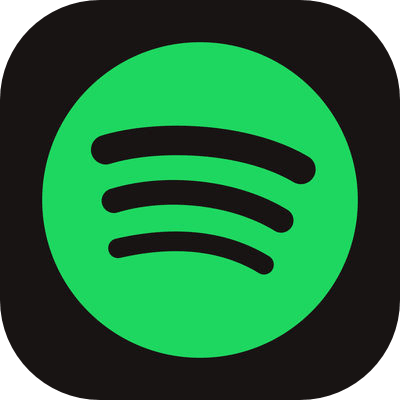-
Paying For Spotify In App카테고리 없음 2021. 5. 23. 05:14


According to a report in The Wall Street Journal, the battle between Apple and Spotify continues to escalate. 'People familiar with the matter' revealed that Apple Music now has more paid US subscribers than Spotify—specifically, more than 28 million versus Spotify's 26 million as of February 2019.
Spotify has a controversial new policy. Yesterday, the Swedish music streaming giant announced it would allow artists and labels to pay to give a song a boost in their recommendation algorithm.But. Historically, Spotify's free and paying users both had access to the same library of 'more than 40 million songs.' As reported by The Verge, Spotify is changing its tune about making users pay to.

Paying for Spotify through Apple. It was possible to pay for Spotify Premium using Apple’s in-app payment system (iAP). However, this has been discontinued for new subscribers. If you currently pay for Premium with Apple’s in-app payment system, it’s easy to switch to subscribe direct with us: Cancel the automatic renewal of your Spotify. With Spotify, you can listen to music and play millions of songs and podcasts for free. Stream music and podcasts you love and find music - or your next favorite song - from all over the world. Discover new music, albums, and podcasts. Search for your favorite song, artist, or podcast. Enjoy music playlists and an unique daily mix made just for you. Make and share your own. The best way to get free Spotify Premium on iOS is to download a modified Spotify app, called Spotify. You can get help from TweakApp, AppValley, or Cydia Impactor, etc. Without jailbreaking. Here, we will take TweakApp as an example to show you how to do it. Spotify is the most flexible option if you want to stream songs without paying, because it has a free, ad-supported tier. You can use Spotify across different devices from smart speakers to game. Download this app from Microsoft Store for Windows 10 Mobile, Windows Phone 8.1, Windows Phone 8. See screenshots, read the latest customer reviews, and compare ratings for Spotify.
Those sources also claim that Apple Music is expanding more rapidly in the US, at a rate of about 2.6 to 3 percent. Spotify's growth rate is reportedly 1.5 to 2 percent.
It's unlikely that Apple will claim this as a victory, because it, like Spotify, doesn't publicly break out regional subscriber counts. However, if the estimates are accurate, they show that US customers are embracing Apple Music as much as (and possibly more than) its Swedish competitor.
But the numbers in the report only reflect paid US subscribers. Spotify, which claimed 207 million active users globally in December, remains the leader of music streaming. Of those 207 million users, 96 million are paid subscribers or users currently in a trial that will lead to subscription.
Unlike Apple Music, Spotify has a free, ad-supported tier. Globally, Apple Music has 50 million paid subscribers; therefore, the numbers from this recent report show that more than half of Apple Music's subscriber count comes from the United States.
AdvertisementWhile Apple Music's growth doesn't spell incredible revenue gains for the company in comparison to its other efforts (it costs a lot to pay record labels, artists, etc), it's a sign that the company is moving in the right direction. Lately, Apple has shifted its strategy to creating and offering more services in an effort to offset sluggish iPhone sales. Apple's new TV streaming service TV+ and its gaming subscription service Apple Arcade will join Apple Music in the company's services portfolio when they launch later this year. The company already launched News+, a paid news and magazine subscription service available in the Apple News app.
This new report follows an Apple and Spotify clash in Europe after the Swedish company argued to the European Commission that Apple is abusing its power to give its music streaming service an upper hand. Spotify has been forced into Apple's In-App Purchase service, which gives Apple a 30 percent commission for transactions made in iOS apps like Spotify's. That system forced Spotify to raise its prices in Europe to €12.99 per month, a change that happened about one year before Apple Music debuted at Spotify's original €9.99 monthly price.

As a result, Spotify has tried to circumvent Apple's system by directing users to its website, where transactions wouldn't be subjected to Apple's commission fee. Apple wasn't keen on this strategy and has responded by taking a long time to approve new versions of Spotify's iOS app. Experts believe Spotify has a good case in Europe, but the European Commission has yet to respond to the company's antitrust request.
Spotify has a controversial new policy.
Yesterday, the Swedish music streaming giant announced it would allow artists and labels to pay to give a song a boost in their recommendation algorithm. But instead of directly paying in cash for this amplification, music creators would take less money for streams of the promoted song, or what the company calls a “promotional recording royalty rate.”
Spotify says the new program is an experiment, and hasn’t specified exactly how much lower the streaming rate would be for promoted songs. The company notes the promotion will only be one of many factors that leads to a song’s recommendation, and the program will only be part of radio and autoplay formats (i.e. the songs that automatically play after you finish an album or playlist, like “RapCaviar” and “Today’s Top Hits“). It won’t yet be part of Spotify’s “Discover Weekly” or “Daily Mix,” the most desirable individualized playlists. All listens to promoted songs outside of radio and autoplay will receive the usual payment rate. If a promoted song is not succeeding with listeners, the algorithm will stop recommending it.
Spotify claims the new program’s reliance on reduced royalties, rather than direct payments, makes it “accessible to artists at any stage of their careers.” In other words, it won’t just benefit the artists with the most money behind them.
Download Spotify App For Windows
Many musicians are not buying it, calling the program a new version of “payola“—the illegal practice of paying radio stations money to play certain songs in order to make them hits. “This a form of payola or sponsored social media post,” said musician rights’ advocate and singer-songwriter David Lowery. “It is not necessarily illegal, but the tracks would need to be labeled.”
YouTuber and composer Adam Neely calls the program “payola, but way worse.” (Spotify did not immediately respond to questions about whether the promoted songs would be labeled. This story will be updated if Spotify answers.)
How you look at this program, in some ways, comes down to how you view advertising.
From an economist’s perspective, advertising is, most importantly, a way to expose people to a new product. For example, a new artist might feel they have a great new song, but they haven’t been able to get it in front of many listeners. Unfortunately for the artist, Spotify’s algorithm hasn’t been recommending the song very often because so few people have listened and it doesn’t share sonic features with many other songs (two important factors that impact recommendation). The new program offers that artist a better chance to get an audience. If the artist is right about their song’s appeal, they will have made new fans, and people will choose to listen to the artist independently. Spotify makes more money and the artist benefits. A win-win.
A critic of the program might ask: if Spotify really wants to help artists, why don’t they just ask them which songs are a priority and promote them, rather than make them pay for this privilege? Economic theory again suggests payment might not be an unreasonable tool for identifying promising songs. Paying for advertising is actually a signal that a product is of high quality, according to some economic models. If someone is willing to give up money to convince you to try their new product, that seller probably thinks they have a product you will love, and can turn you into a return customer. In the case of Spotify’s new program, accepting a lower streaming payment for promotion is a sign that an artist really believes in a song, and that the algorithm is missing something.
Spotify Premium App For Iphone
Yet that is the rosiest possible picture. The program can also be seen as a way for Spotify to benefit from big music labels’ desire to suck up all the streams and cement their status in the market. We know that companies like Coca-Cola and Pepsi, which sell already well-known products, spend billions on advertising every year. This spending is intended to make sure the giants maintain their dominance over newcomers. Major music labels like Sony and Universal may be able to afford to give their artist’s songs a bump, while the indies are barely getting by on the paltry royalties Spotify currently pays—artists receive between $0.003 and $0.005 per stream according to Digital Music News.